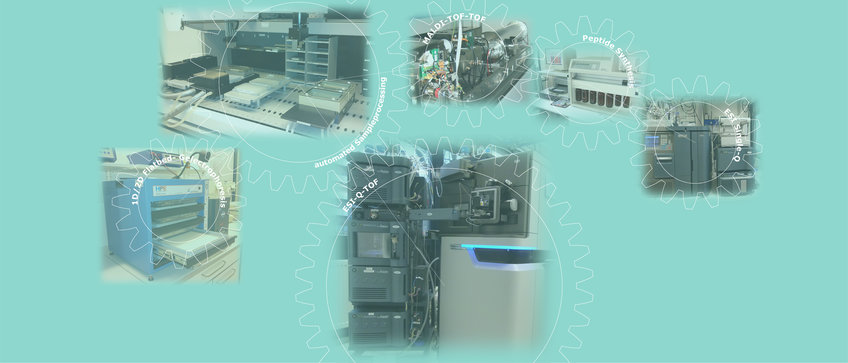
Neuroproteomics
With its long-standing expertise in molecular neurosciences and mass spectrometry, the Neuroproteomics Group supports MPI-NAT researchers mainly working in the fields of neuron and glia biology. We also closely collaborate with the local University Medical Center Göttingen on the application of proteomic approaches to improve our molecular understanding of neuropsychiatric diseases (see Translational Neuroproteomics), and we are part of the Göttingen Proteomics Forum, a local scientific network of researches with a common interest in Omics technologies.
Our approaches include screening of protein interactors, charting of subcellular protein fractions, and quantitative profiling of entire proteomes, which we mainly apply to neuronal and glial protein preparations to study the synapse and the myelin sheath as key elements of the nervous system. To be able to address these complex questions and in line with increasing demands for routine proteome profiling of mouse models, we have developed a technology platform based on automated sample preparation protocols, label-free protein quantification by mass spectrometry, and customized data analysis pipelines. Complementing other phenotyping approaches such as imaging or electrophysiology, our "proteomic phenotyping" workflow aims at providing mechanistic insights into the biology and pathology of mouse models of neurological and psychiatric relevance.
Independent research of the group focuses on the investigation of synaptic protein complexes with customized peptidic tools and, more recently, on the mass spectrometric characterization of the various forms of amyloid-β, a peptide believed to play a role in the pathogenesis of Alzheimer’s Disease.

